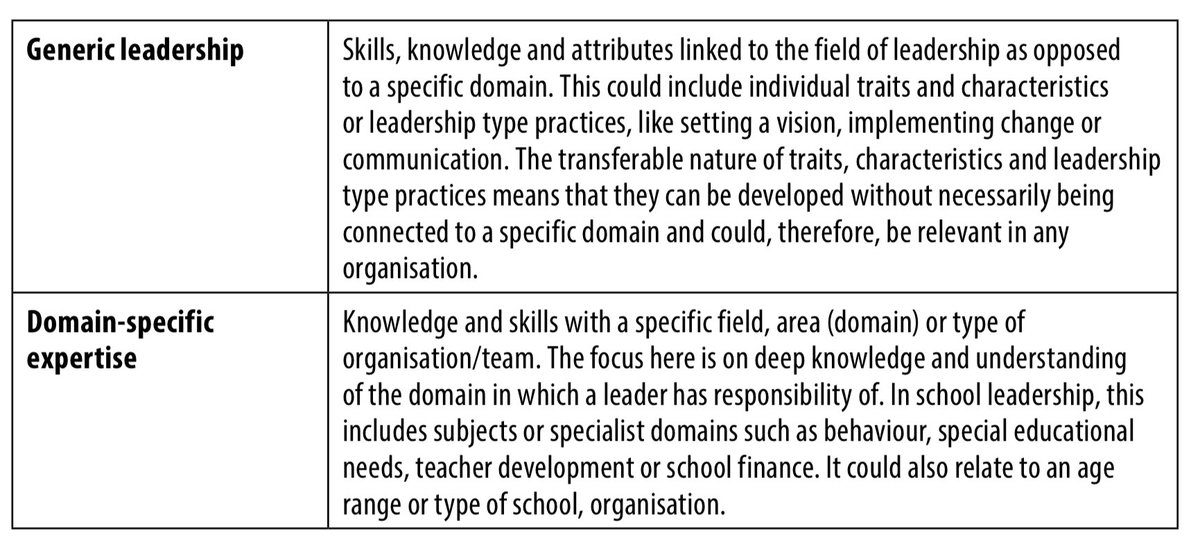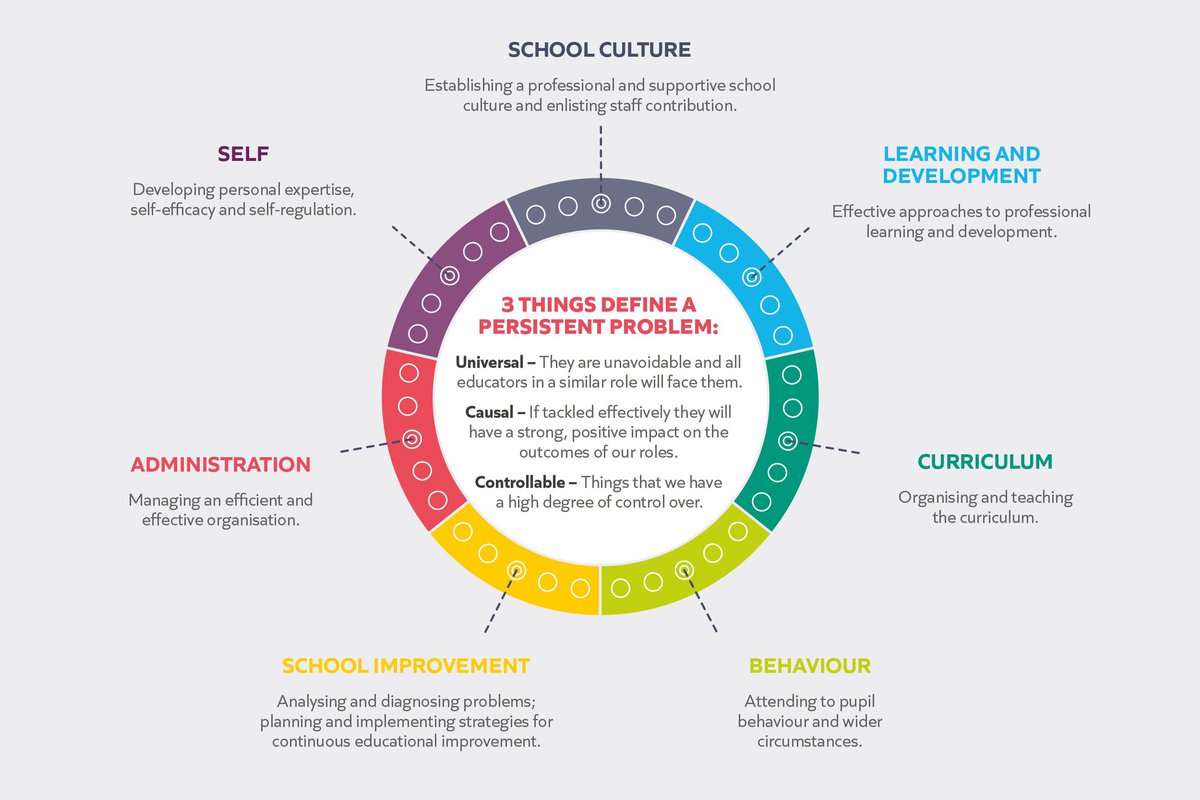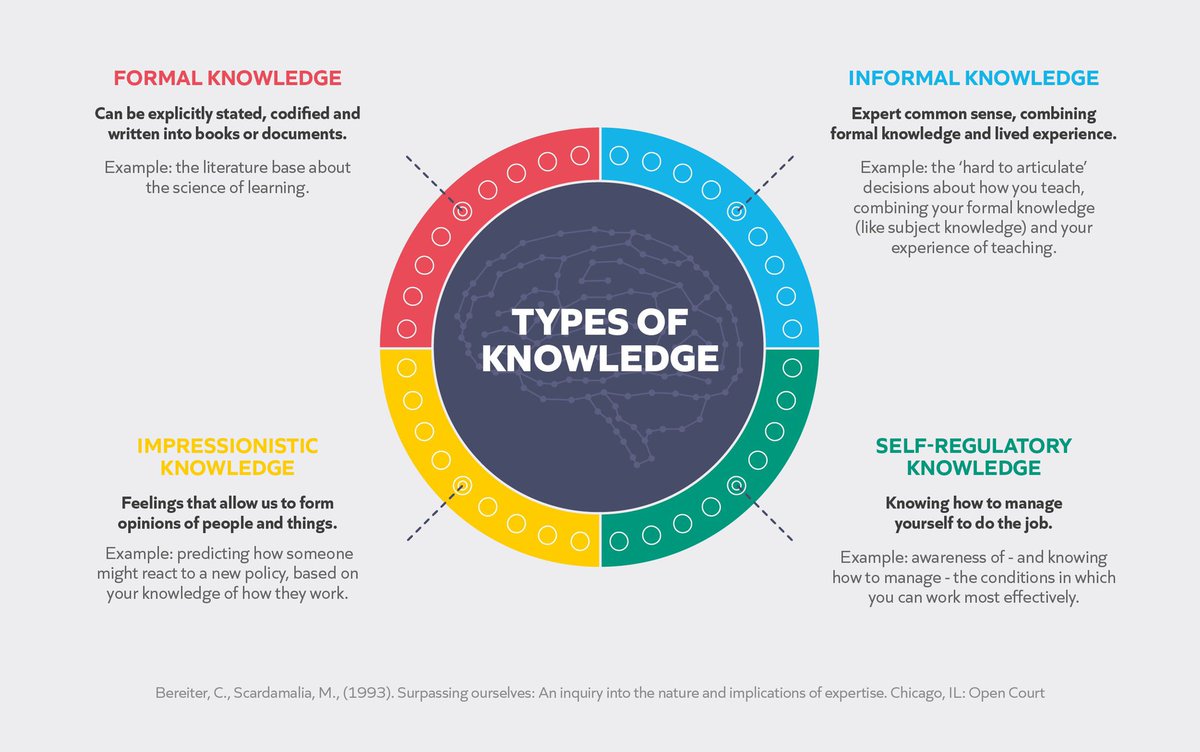Finally, the @researchED1 Guide to Leadership is here in print!
@Barker_J and I were honoured to have been asked to write 2 chapters in the book:
1. What is School Leadership?
2. Developing School Leaders
Here’s a thread with a few key ideas and bits of connected writing. https://twitter.com/johncatted/status/1326170345670373377
@Barker_J and I were honoured to have been asked to write 2 chapters in the book:
1. What is School Leadership?
2. Developing School Leaders
Here’s a thread with a few key ideas and bits of connected writing. https://twitter.com/johncatted/status/1326170345670373377
1. ‘Leadership’ is an abstract & poorly defined term.
It means different things to different people. It’s also relatively new to education: only in the last 20-30yrs that we’ve referred to senior teachers & school staff as ‘leaders’ https://www.ambition.org.uk/blog/helping-leaders-keep-getting-better/
It means different things to different people. It’s also relatively new to education: only in the last 20-30yrs that we’ve referred to senior teachers & school staff as ‘leaders’ https://www.ambition.org.uk/blog/helping-leaders-keep-getting-better/
2. Generic leadership approaches have become dominant.
The influence of transformational leadership theory (vision, mission, change & an individual’s ability to build ‘followers’) in particular has dominated the discourse & approaches to training and professional qualifications.
The influence of transformational leadership theory (vision, mission, change & an individual’s ability to build ‘followers’) in particular has dominated the discourse & approaches to training and professional qualifications.
3. Beware the ‘hero paradigm’.
A focus on the individual leader often attributes success to the personal characteristics/traits of the individual (charismatic, dynamic, visionary, humble, passionate etc.) rather than what they know & are able to do. https://schoolsweek.co.uk/no-more-heroes-time-to-change-the-record-on-school-leadership/
A focus on the individual leader often attributes success to the personal characteristics/traits of the individual (charismatic, dynamic, visionary, humble, passionate etc.) rather than what they know & are able to do. https://schoolsweek.co.uk/no-more-heroes-time-to-change-the-record-on-school-leadership/
4. Expertise: Substance over style.
By thinking of leadership as a form of expertise, we propose a model that shifts the focus away from the individual and onto their work and what they’re responsible for. https://schoolsweek.co.uk/substance-over-style-is-the-key-to-great-school-leadership/
By thinking of leadership as a form of expertise, we propose a model that shifts the focus away from the individual and onto their work and what they’re responsible for. https://schoolsweek.co.uk/substance-over-style-is-the-key-to-great-school-leadership/
5. Persistent Problems
We can think of leadership as a problem solving endeavour. Building on the work/ideas of @RobinsonViviane, Mary Kennedy @nmgilbride & others here. https://www.ambition.org.uk/blog/persistent-problems-school-leadership/
We can think of leadership as a problem solving endeavour. Building on the work/ideas of @RobinsonViviane, Mary Kennedy @nmgilbride & others here. https://www.ambition.org.uk/blog/persistent-problems-school-leadership/
6. We propose 7 ‘persistent problems’ that underpin the work of school leaders:
School Culture
Professional Development
Curriculum & Teaching
Behaviour
School Improvement
Administration
Self efficacy/regulation
School Culture
Professional Development
Curriculum & Teaching
Behaviour
School Improvement
Administration
Self efficacy/regulation
7. Domain-specific knowledge is central to being a good school leader.
Knowledge is an unfashionable term in a conception of leadership but underpins all our values/beliefs & governs our decision making and interactions. https://www.ambition.org.uk/blog/hidden-knowledge-experts/
Knowledge is an unfashionable term in a conception of leadership but underpins all our values/beliefs & governs our decision making and interactions. https://www.ambition.org.uk/blog/hidden-knowledge-experts/
8. A broad conception of knowledge is important.
As well as formal knowledge (the stuff of books, papers or blogs), we explore three other types, termed as the ‘hidden knowledge of experts’ (Bereiter & Scardamalia)
Informal
Impressionistic
Self-regulatory
As well as formal knowledge (the stuff of books, papers or blogs), we explore three other types, termed as the ‘hidden knowledge of experts’ (Bereiter & Scardamalia)
Informal
Impressionistic
Self-regulatory
http://9.Here ’s a short summary of some of these ideas that we wrote for Issue 9 of Impact @CharteredColl.
 Complexity
Complexity
 Expertise
Expertise
 Knowledge
Knowledge
 Persistent Problems https://impact.chartered.college/article/2020-new-perspective-school-leadership/
Persistent Problems https://impact.chartered.college/article/2020-new-perspective-school-leadership/
 Complexity
Complexity Expertise
Expertise Knowledge
Knowledge Persistent Problems https://impact.chartered.college/article/2020-new-perspective-school-leadership/
Persistent Problems https://impact.chartered.college/article/2020-new-perspective-school-leadership/
10. Thanks and congratulations to @StuartLock @tombennett71 @hgaldinoshea @researchED1 @JohnCattEd on pulling together the book. It’s got some great contributions as chapters and am sure it will generate further debate and progress.  https://www.amazon.co.uk/dp/1912906414/ref=cm_sw_r_cp_api_fabc_nIvSFbT0V77NG
https://www.amazon.co.uk/dp/1912906414/ref=cm_sw_r_cp_api_fabc_nIvSFbT0V77NG
 https://www.amazon.co.uk/dp/1912906414/ref=cm_sw_r_cp_api_fabc_nIvSFbT0V77NG
https://www.amazon.co.uk/dp/1912906414/ref=cm_sw_r_cp_api_fabc_nIvSFbT0V77NG

 Read on Twitter
Read on Twitter




